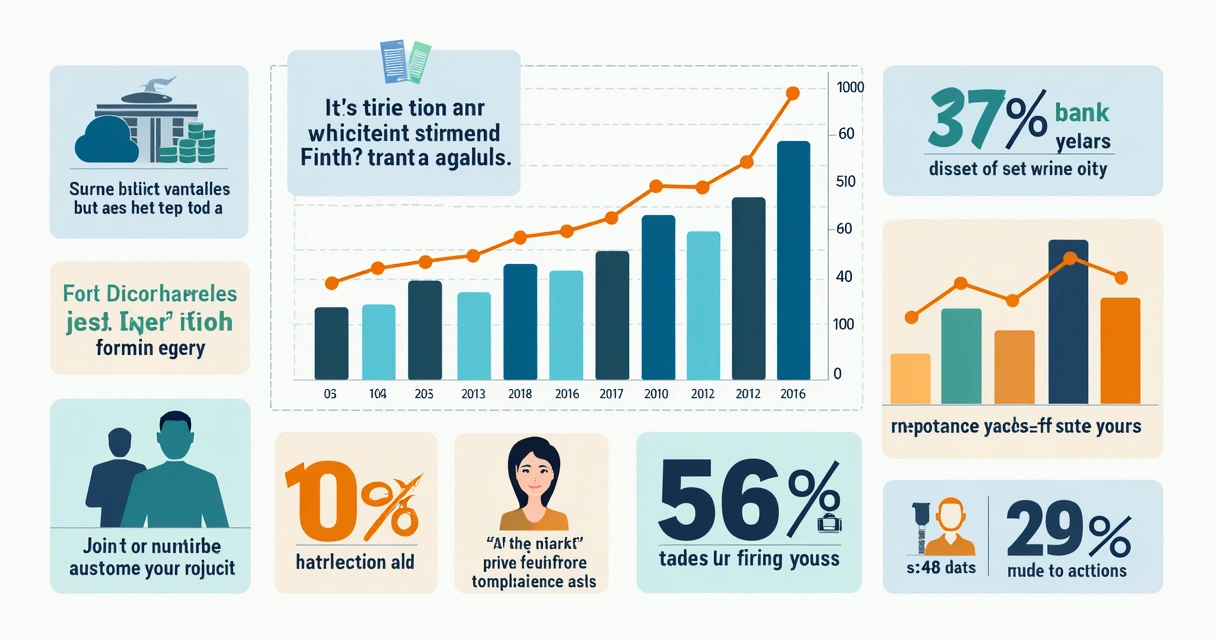Running a business in the United States is filled with potential. There are opportunities to grow, innovate, and build something lasting. Yet, one area weighs heavy on almost every entrepreneur’s mind: taxes. Tax laws change, reporting rules seem endless, and nothing ever feels simple. That’s where reliable guidance makes all the difference.
This article is your deep guide for understanding how a skilled tax advisor (sometimes called a tax consultant or tax strategist) supports businesses with compliance, long-term planning, and peace of mind. You’ll see how their advice shapes financial decisions, helps avoid costly surprises, and opens the door to new business opportunities.
A single oversight in tax compliance can ripple for years.
Why businesses need tax guidance
First, it’s worth pausing to consider the scale of the challenge. According to projections from the IRS on the tax gap, underreporting alone is estimated to account for $539 billion each year. Those are mistakes, oversights, or missteps. The cost is huge, not just to the government but to the businesses that face penalties, investigations, or even criminal action.
But then, there’s the other side. When the IRS supported over 62 million taxpayers in 2024 alone, per IRS taxpayer service reports, it showed the sheer demand for professional help. Business owners aren’t expected to be tax experts—though the consequences for misunderstanding the rules can be steep.
What is a tax advisor?
It’s easy to mix up roles in the world of taxes. You hear about tax advisors, certified public accountants (CPAs), enrolled agents (EAs), and bookkeepers. So, what sets a tax advisor apart?
Tax advisors are professionals who provide advice and strategies for tax compliance, planning, and representation before tax authorities. Their work includes not only preparing and reviewing filings but also ensuring a client’s overall financial picture is as favorable as the law allows.
- Strategic advice: Going beyond returns, tax consultants seek ways to lower payments, time income, or take advantage of credits and deductions.
- Compliance support: They make sure the business stays in line with current regulations, from quarterly filings to year-end paperwork.
- Representation: If there’s a dispute or audit, an experienced advisor steps in between the business and the IRS or state authorities.
In a nutshell, they’re planners and guides. And for businesses, that means more time to focus on what matters most.
 Key roles and qualifications of tax advisors
Key roles and qualifications of tax advisors
Building trust in a professional takes more than just a business card and a promise. Here’s what actually makes a tax advisor valuable to American businesses:
- Education: Most hold undergraduate degrees in accounting, finance, or business, and many pursue additional certifications.
- Professional certification: Often, tax consultants are CPAs or enrolled agents, which means formal testing and ongoing education are part of the job.
- Continuing education: The law shifts. Good advisors keep up through courses, seminars, and daily updates from trusted sources like the Tax Policy Center and the Tax Foundation.
- Experience: Practice matters. An advisor who’s worked with a variety of companies, structures, and states is more able to spot issues or opportunities before they become problems.
For a project like Prézzo Consulting, these qualifications are the foundation. Their approach brings together advanced knowledge, real communication, and a dedication to client well-being.
The difference between tax advisor, CPA, and enrolled agent
You might wonder: Can a CPA do the same things as a tax strategist? What about enroll agents? Or bookkeepers? There are some overlaps, but crucial differences exist.
- Tax advisor: A broad role covering advice, planning, compliance, and advocacy. May be a CPA, EA, or non-licensed professional with deep experience (though credentials matter greatly for sensitive or complex representation work).
- Certified Public Accountant (CPA): Accountants with state licensure, training in tax as well as audits and general accounting. CPAs often work as tax specialists, but their expertise covers more than just taxes.
- Enrolled Agent (EA): Federally licensed to represent taxpayers before the IRS. EAs commonly specialize in tax matters and maintain rigorous ongoing training in tax law.
A bookkeeper, by comparison, usually manages day-to-day transaction tracking, not advising on strategic decisions. When tax season or complicated filings emerge, it’s typically the tax consultant, CPA, or EA who takes the lead.
Core services offered by a tax advisor
What will you actually get from hiring a professional tax consultant for your business? Here’s a rundown:
- Review and preparation of business tax filings (including federal, state, and local forms)
- Strategic planning around deductions, credits, and entity structure
- Advice on timing of income, purchases, and capital investment
- Guidance on payroll, sales tax, or specialty industry-related taxes
- Assistance during audits, controversies, or IRS communications
- Support for annual budgeting and longer-term forecasting with tax implications in mind
- Regular communication about legal changes affecting your sector
A little expert advice today can save years of trouble tomorrow.
Choosing the right tax consultant for your business
Not all professionals bring the same skills or style. If you’re a startup struggling with rapid growth, or a family business entering new markets, your needs are unique. Here are a few questions worth asking when searching for the right fit:
- What are their credentials and areas of specialty?
- Do they have experience with businesses like mine?
- How do they stay current with tax law updates?
- Can they explain their recommendations in plain language—no jargon?
- Are their fees transparent and predictable?
It’s smart to interview a professional as you would any other key partner. The right advisor is someone who can connect complex concepts to your real-life business decisions.
The ongoing benefits: growth, clarity, and profits
Perhaps you’re not convinced if ongoing tax guidance makes much difference for a small business. It’s a fair question. No one wants to add costs unless there’s real return. Here are a few scenarios that happen more often than you might think:
- A new deduction discovered: Reduces tax liability, improving cash flow just when you need it for expansion.
- Early warning on a new compliance burden: Avoids costly penalties—since being proactive means no frantic, last-minute fixes.
- Choosing an S-corp vs LLC: Impacts not just taxes, but payroll, self-employment, and even long-term wealth building.
- Planning for a major purchase or sale: With strategy, that equipment buy can yield a 179 deduction this year; without, it becomes just another expense.
- Representation in an audit: Professional advocacy means you don’t have to navigate reviews, requests, or interviews alone.
For smaller and midsize companies especially, a proactive approach sets the stage for stronger growth. Advice is often most valuable when received before decisions are locked in, not after.
 Staying current: the moving target of US tax law
Staying current: the moving target of US tax law
If there’s one constant in the world of taxes, it’s change. But what happens when you miss a major regulation update?
Tax law never sits still.
The Taxpayer Advocate Service’s annual report highlights how even routine IRS adjustments catch people off guard. For example, shifts in allowable deductions for meals, entertainment, or bonus depreciation can move the goalposts on what a business owes.
- Miss a state filing deadline: Risk late fees and accumulating interest.
- Ignore a new reporting requirement: Trigger scrutiny or lose eligibility for credits.
- Misclassify workers: Open the door to audits and back taxes.
Reliable tax professionals make it their job to stay ahead of these changes. It’s not just about passing an exam once—as evidenced by the current and historical tax statistics from the Tax Policy Center—it’s about following legislative updates, reviewing IRS bulletins, and learning from their own network and experience every year.
Tax advisory as a growth tool
The perception of tax work as reactive (a chore at year’s end) is changing. More business owners now see strategic advice as a day-to-day tool for clarity and expansion. Here’s how it can play out:
- Cash flow forecasting: Planning taxes alongside sales projections exposes pinch points and opportunities before they happen.
- Investment timing: Buying equipment or property? The right timing can tilt taxes in your favor for a whole year—or longer.
- State and local strategy: With new research on state competitiveness and business taxes, your advisor can suggest headquarters, expansion sites, or structural changes that lower overall tax exposure.
- Exit planning: Whether you hand the business to family or consider a sale, expert guidance defers taxes, preserves wealth, and minimizes mistakes in high-stakes moments.
Sometimes, it’s the routine check-ins, the newsletters, or the quick phone call in March before a transaction that makes a world of difference.
 Real-life examples: tax planning in action
Real-life examples: tax planning in action
Let’s picture two entrepreneurs. One waits until tax season, scrambling for invoices and deductions. The other works with a consultant year-round, adjusting as the business grows. The difference? The second identifies “hidden taxes,” secures available credits, and spends less time (and fewer nerves) on compliance.
Scenario 1: A restaurant owner adopts a new employee retention credit early, after careful briefing by their tax advisor, keeping cash moving through the slow season.
Scenario 2: A tech startup structures operations to maximize R&D credits, saving thousands and freeing up capital for hiring.
Scenario 3: An e-commerce business expands into several states, adjusting filings to match new rules—and sidestepping major sales tax headaches down the road.
How prézzo consulting supports US businesses
With all this complexity and opportunity, having a partner like Prézzo Consulting can be the deciding factor between stalling and flourishing. They offer full-scope accounting, financial management, and custom tax advice, guiding businesses toward clarity and sustained success. Their expertise doesn’t end at compliance, but helps sharpen focus on what actually drives better results.
If you’re ready to understand more, Prézzo Consulting’s advisory services and their full business accounting and tax support in the US can provide tailored strategies for your specific sector and scale.
 Useful resources and next steps
Useful resources and next steps
- If you want a detailed breakdown of business tax types, check this complete guide to US taxes.
- For planning future payments, visit our page on tax planning for businesses.
- Worried about tax season? We break down getting ready for the IRS rush on this page.
Don’t wait for deadlines or surprises. Reach out to the Prézzo Consulting team—find real solutions and a trusted partner for your business journey.
Answers to common tax advisory questions
What does a tax advisor do?
A tax advisor supports businesses by offering guidance on tax regulations, preparing filings, suggesting ways to lower liability, and representing clients in case of audits or disputes. They analyze your business’s financial landscape, keep up with legal changes, and provide recommendations that help you confidently handle both day-to-day and complex tax situations. Their goal is to minimize errors, reduce payments where possible, and give clarity on decisions with tax consequences.
How to choose a good tax consultant?
Look for a tax consultant with strong credentials, such as CPA or EA certification, and actual experience with businesses like yours. Ask about their continuing education, familiarity with your industry, and how they handle changing tax law. Good communication—explaining things in clear terms—and a transparent fee structure are also signs of a trustworthy advisor. References or success stories from similar businesses provide extra reassurance.
How much does tax advisory cost?
Fees for business tax advisory can vary widely depending on the complexity of your operation, the region, and the advisor’s experience. Some charge hourly rates, while others offer flat fees for specific services or monthly retainers for ongoing advice. For routine annual preparation, costs might be a few hundred dollars. For more in-depth planning or audit support, they can rise into the thousands. Most business owners find the savings or security provided outweigh the expenses, especially as their companies grow.
Is it worth hiring a tax advisor?
For many businesses, hiring a tax advisor proves worthwhile. Expert strategy may reduce liability, prevent costly mistakes, and free up leadership to focus on growth. The time saved gathering documents, researching new law, or handling IRS inquiries often covers the consultant’s fee. And with proactive planning, businesses can better time expenses, prepare for audits, and use credits or deductions often overlooked without professional support.
What are the benefits of tax planning?
Tax planning makes it possible to anticipate, manage, and legally reduce your business’s tax burden. You’ll benefit from improved cash flow (since deadlines and payment amounts are forecast), avoidance of penalties, maximization of deductions, and a structure for making large financial decisions with certainty. Tax planning also supports compliance, which protects your reputation and avoids surprises, positioning your business for sustained and healthy growth.

 Key roles and qualifications of tax advisors
Key roles and qualifications of tax advisors Staying current: the moving target of US tax law
Staying current: the moving target of US tax law Real-life examples: tax planning in action
Real-life examples: tax planning in action Useful resources and next steps
Useful resources and next steps
